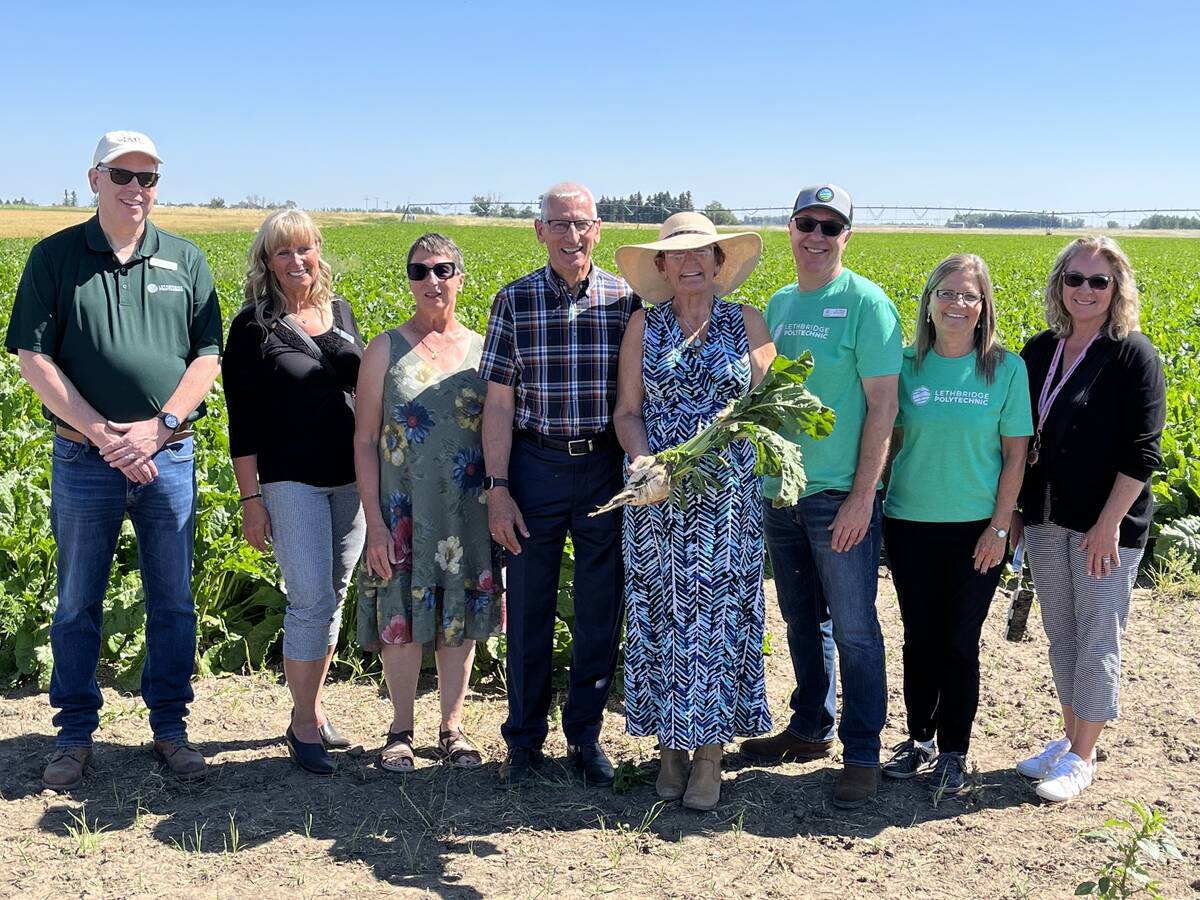Potato producers heading into contract negotiations with North America’s french fry giants may have to fight to keep talks focussed on the challenges facing farmers in their own backyard, warns one industry watcher.
“What’s realistic is what fits for the local area, not something that happened half a continent away and this is what the negotiating officers for the companies are trying to use as a weapon,” said Harry Fraser, a potato analyst in Charlottetown who publishes Fraser’s Potato Newsletter.
Contract talks between spud growers across North America are getting under way and Fraser said negotiators for producers should be ready for a fight.
Read Also

Lethbridge Polytechnic receives major donation
Multimillion-dollar donation by Hranac family aids Lethbridge Polytechnic’s research in integrated food production systems, irrigation science and post-harvest technology in Alberta
Some would say growers in North Dakota and Minnesota lost their battle earlier this month when they settled contracts with Simplot at the same level as last year.
“That had to be disappointing for the growers involved who know they need better prices than what they had last season.”
The cost of producing potatoes has jumped about $200 per acre in the last two years and farmers will need to see that reflected in new contracts in order to stay in business, Fraser said.
“The cost of caring for the crop has gone up, and that’s because farmers are combatting newer strains of blight that have evolved in the last couple of years and need costly treatment,” he said, adding inputs such as machinery and equipment priced in United States currency have also gone up because of the low Canadian dollar.
According to Fraser, Simplot negotiators argued contracts in the western United States are being settled at lower values than last year and also stressed the idea U.S. processors are being hurt somewhat by increased imports of french fries from Canada.
“I don’t think it’s a negotiating point but they seemed to score with it,” he said.
“I’m telling people to avoid if they can the negotiating points that fry companies are making about other areas because you cannot make a comparison between the Columbia Basin and Manitoba or Maine or New Brunswick or P.E.I. It’s impossible with potatoes.”
Growing conditions differ
Potato farmers in the U.S. West, where all the main fry companies have plants, are dealing with different climate conditions, growing seasons and irrigation systems than their Canadian counterparts.
“That allows growers to get yields of 600 hundredweight per acre, while you’re doing well in Manitoba with 250 cwt. an acre,” Fraser said.
Spud growers in Manitoba have one advantage going into negotiations, Fraser said: They’re the only game in town.
Ontario can’t grow Russet Burbanks and Shepody varieties “and the industry in Saskatchewan is still in its infancy,” he said.
“Fry companies are unlikely to go to New Brunswick or P.E.I. because the freight factor is so high.”
Most of Manitoba’s potato business is eaten up by french fry processors.
One of the largest in the business, McCains, has fry plants in Manitoba, New Brunswick and Prince Edward Island. That could pose a threat to growers in all three provinces once contract talks are under way.
“As a rule coast to coast, negotiators for fry and chip companies will play one area of growers against another if they can, and it’s up to growers in these different areas to stand up for what they know to be right for them.”
















